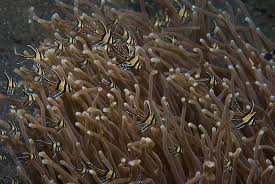
China has a long and complex history, where family legacies and political power have often been intertwined. The role of influential families in shaping the country’s political landscape is both significant and multifaceted, with education acting as a crucial bridge between family legacies and political authority. For centuries, Chinese families, particularly aristocratic and elite families, have wielded significant influence over the education system, and through it, political power. The relationship between education and political power, facilitated by these families, has shaped the trajectory of Chinese society. This article explores how these families, with their emphasis on education, have contributed to and shaped political authority throughout Chinese history.
1. The Cultural Importance of Education in China
Education in China has historically been more than just a means of acquiring knowledge. It has served as a tool for moral cultivation, the transmission of cultural values, and a means to maintain social and political order. From the earliest dynasties, China’s educational system has been steeped in Confucian ideals, where moral virtue, family hierarchy, and societal harmony were central themes.
Confucianism posits that education should not only develop intellectual abilities but also foster a strong sense of responsibility to one’s family, community, and country. This educational philosophy laid the foundation for the civil service examinations, which became central to China’s system of governance. The imperial examination system, established during the Sui Dynasty (581–618 CE) and fully developed during the Tang Dynasty (618–907 CE), allowed individuals to enter government service based on merit, as opposed to birthright. However, despite the meritocratic nature of the exams, family connections played a critical role in one’s success, creating a system where education and political power were intricately linked.
2. Aristocratic Families and Their Influence on Education
For many centuries, aristocratic families held substantial sway over both education and political affairs in China. These influential families often controlled vast amounts of land, wealth, and resources, which enabled them to establish private schools and tutoring systems for their children. Education in these families was not only about academic achievement but also about preparing the next generation for leadership roles within the political sphere.
Elite families were often instrumental in preserving traditional values and academic practices. They invested heavily in the classical education system, ensuring that their children studied the Confucian classics, which emphasized not only academic skills but also the moral and ethical responsibilities of rulers. These teachings were viewed as essential for maintaining societal harmony, and aristocratic families saw themselves as the stewards of these values.
As a result, these families held an undeniable advantage when it came to securing political power. They had access to the best education, the most prestigious tutors, and the resources to enter and advance within the bureaucracy. The intertwining of education and political power in aristocratic families created a system where dynastic power was preserved not only through lineage but also through intellectual achievement, rooted in Confucian ideals.
3. The Imperial Examination System and Family Connections
The imperial examination system, which dominated China’s education system for over a millennium, is an example of how education and political power were linked through family connections. While the system ostensibly allowed individuals to gain government positions based on merit, the reality was that aristocratic families often had greater access to the resources needed to succeed in these exams. The cost of education, preparation materials, and tutors made it much easier for children from wealthy families to excel in these examinations, which in turn provided them with opportunities for government positions and political influence.
Aristocratic families also employed strategies to ensure their children’s success in these examinations. Family networks, connections with scholars, and political affiliations often played an essential role in securing high positions. This system perpetuated a cycle where political power was often concentrated within a small group of wealthy families who controlled access to education and the means to succeed in the exams.
While the imperial examination system provided opportunities for commoners, it still disproportionately benefited those with the financial means to pursue long-term education. This led to the reinforcement of political power within elite families, with their children becoming the bureaucrats and officials who managed the affairs of the empire.
4. Political Power and Education During the Imperial Dynasties
Throughout China’s imperial history, family control over education and political power was crucial in maintaining dynastic stability. Notably, during the Tang and Song Dynasties, many aristocratic families exerted significant influence over both political and educational matters. These families often intermarried with ruling elites, creating a symbiotic relationship between educational attainment and political authority.
The powerful families in these periods ensured that their children received the best education, often focusing on subjects like Confucian ethics, history, and law, which were seen as prerequisites for participation in government. Family members would often serve as advisors or even as high-ranking officials, contributing to the concentration of both educational and political power within a select group of families.
In the Qing Dynasty (1644–1912), the imperial examination system reached its peak, with families continuing to play a significant role in securing positions of power. While the Qing Dynasty implemented some reforms, the centrality of education as a means of accessing political power remained, and family connections remained indispensable for securing high-level bureaucratic positions.
5. The Decline of Aristocratic Families and the Rise of New Political Structures
The fall of the Qing Dynasty and the rise of the Republic of China in the early 20th century marked a significant shift in China’s political and educational landscape. The new government, led by figures such as Sun Yat-sen, sought to modernize the country, move away from traditional systems, and implement new forms of education that were more accessible to a broader range of people.
Despite these reforms, the legacy of aristocratic families in education and politics did not disappear overnight. Many influential families continued to hold power in the early years of the Republic, using their wealth and resources to influence political decisions and maintain control over educational institutions. The political landscape remained heavily influenced by a small group of elites, and education was still largely a means by which political power was achieved and maintained.
The May Fourth Movement of 1919, a cultural and intellectual movement that sought to reform Chinese society and education, was a direct response to these entrenched power structures. It was an attempt to challenge the influence of aristocratic families and promote a more inclusive and modern system of education that could foster new political and social structures. However, the influence of elite families over education and politics persisted, even as new systems of governance were introduced.
6. The Modern Era: Family Power and Education in Contemporary China
In contemporary China, the influence of aristocratic and elite families on education and political power remains significant, though it has taken new forms. The modern Chinese government, which emerged from the Communist Revolution of 1949, sought to eliminate many of the old feudal power structures. However, the role of education in maintaining political power remains central to the system.
In today’s China, education continues to be a gateway to political success. While the Communist Party emphasizes merit-based advancement, the reality is that family connections continue to play a significant role in determining one’s ability to succeed in politics. The children of prominent political figures or business elites often have better access to prestigious universities, international networks, and opportunities for government positions.
One notable example is the concept of guanxi (关系), which refers to the network of relationships and connections that are crucial in Chinese society. Guanxi often helps individuals gain access to education, employment, and political power. In modern China, it is not uncommon for children from influential families to receive special treatment in terms of education and career opportunities, which often paves the way for them to rise to positions of political power.
Furthermore, the growing wealth gap in China has led to increasing educational inequality, where the children of the wealthy can attend elite universities both in China and abroad, while the children of poorer families have limited access to higher education. This reinforces the connection between education and political power, as those with the best educational opportunities are better positioned to influence the country’s political landscape.
7. Conclusion: The Continued Intersection of Education and Political Power
The interconnection between family, education, and political power in China is a deeply rooted tradition that has evolved over centuries. From the imperial examination system to the modern era, families, particularly the wealthy and aristocratic, have had a significant role in shaping China’s education system and political structures. Despite the many changes that have occurred in China’s political landscape, the relationship between education and power remains central to the country’s development.
In modern China, while the political system has shifted towards communism and the influence of aristocratic families has been reduced, the underlying principles of family-based power structures continue to impact both education and political life. As China continues to evolve, it is likely that the relationship between family, education, and political power will continue to shape the nation’s future.









